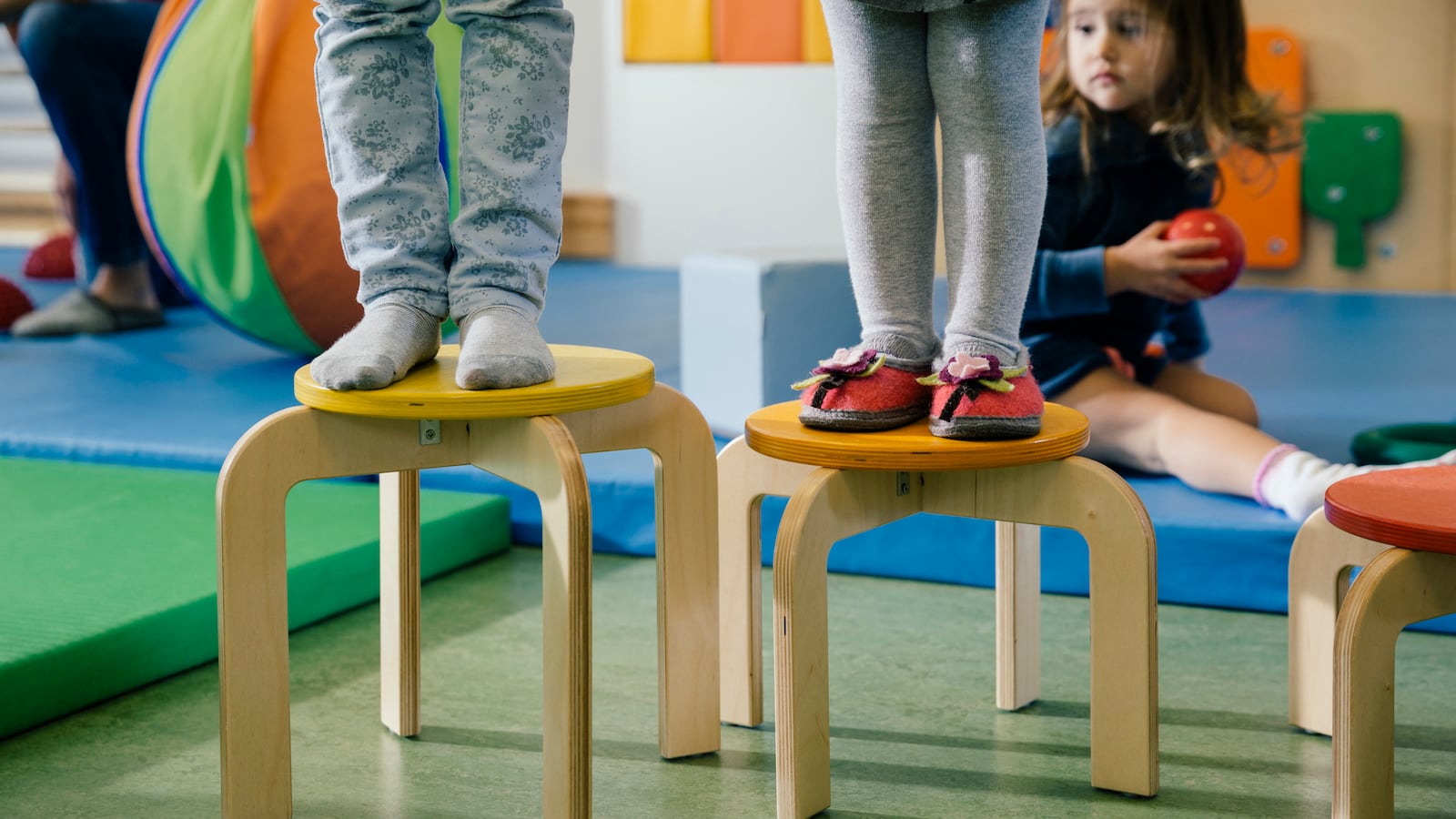In the past decade, as other states have ramped up their spending on early education, budget-strapped Illinois has fallen further behind.
In his first budget proposal as governor on Wednesday, J.B. Pritzker, a philanthropist who has contributed millions to early childhood causes at home and nationally, laid out a plan to reverse that Illinois trend with a historic $100 million bump for preschool and other early learning programs.
“I have been advocating for large investments in early childhood education for decades, long before I became governor,” he said, laying out a $594 million early education spending plan that is part of an overall $77 billion package. “Investing in early childhood is the single most important education policy decision government can make.”
Later in the address, Pritzker detailed a smaller increase, but one that some advocates said was a welcome shift in policy: He described first steps toward repairing a child care assistance program that was drained of families and providers during the administration of his predecessor, Gov. Bruce Rauner. The new governor plans to spend $30 million more to rebuild the program. He also will increase income eligibility so an estimated 10,000 more families can participate.
“These priorities turn us in a different direction,” said Maria Whelan, CEO of Illinois Action for Children, which administers the child care assistance program in Cook County. Compared with the state’s previous approach, “I feel like I just woke up from a bad dream.”
Pritzker’s otherwise “austere” budget address, as he described it in his speech, came 12 days after his office revealed that the state’s budget deficit was 14 percent higher than expected — some $3.2 billion.
The state’s early childhood budget funds a preschool-for-all program that serves more than 72,000 3- and 4-year-olds statewide in a mix of partial- and full-day programs. Chicago has been using its share of state dollars to help underwrite its four-year universal pre-K rollout, which has gotten off to a bumpy start in its first year.
The state early childhood grant also supports prenatal programs and infant and toddler care for low-income families.
Pritzker pledged on the campaign trail to pave a pathway toward universal pre-K for the state’s 3- and 4-year-olds, and this budget falls short of the estimated $2.4 billion it would cost, at least according to a moonshot proposal made in January by the lame duck state board of education. The state’s school Superintendent Tony Smith stepped down at the end of January, and Pritzker has yet to name a successor.
But policymakers and advocates on Wednesday said the considerable $100 million increase is a step in the right direction for a state that has been spending less per student than many of its neighbors. According to the National Institute for Early Education Research, Illinois spent $4,226 per young learner in 2016-2017 compared with a national average that topped $5,000. Seven states spent $7,000 or more.
“This is a big amount in one year, but also it is what we think is needed to move programs forward, and we’re excited to see it,” said Ireta Gasner, vice president of policy at the Ounce of Prevention, an early-education advocacy group
One item Gasner said she hoped to hear, but didn’t, was increased spending on home visiting programs for families with new babies. Spending on such programs next year will remain flat under Pritzker’s proposal. Home visiting has been suggested as one antidote to the state’s troublingly high maternal mortality rates. An October report from the state’s public health department found that 72 percent of pregnancy-related deaths in Illinois were preventable.
“Overall, we still have a long way to go to serve our youngest families and youngest children,” she said.
In addition to the $100 million, Pritzker’s office reportedly also will add $7 million to early intervention services for young learners with disabilities and set aside $107 million to help buffer the impact of his new minimum wage increase on daycare center owners and other child care providers who operate on thin margins.
On Tuesday, Pritzker signed into a law a minimum wage increase to $15 an hour.
Illinois faces a critical staffing shortage of preschool providers, and several operators have warned that they face mounting pressures from staff turnover, increased regulations, and stagnant reimbursement rates.


